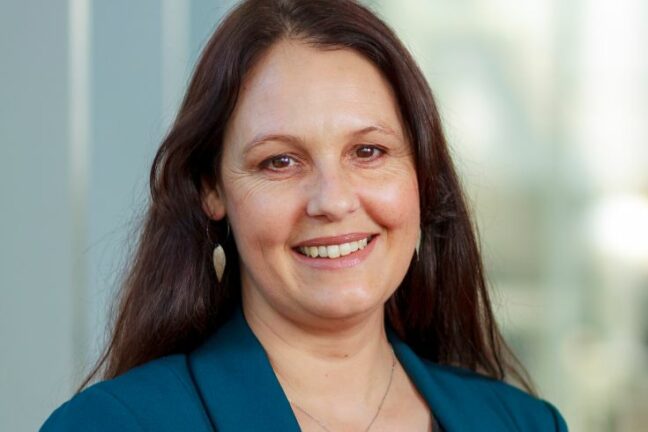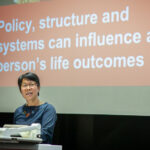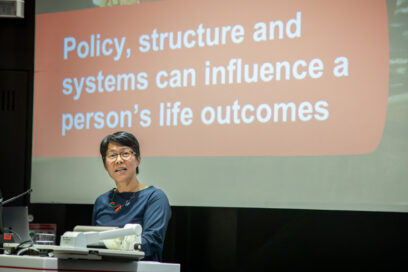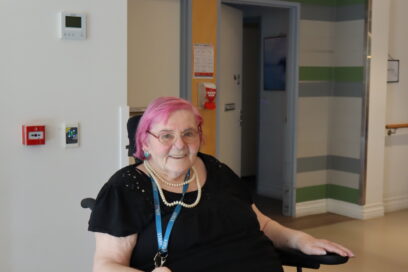Interviewer, Olivia: In your PhD, you investigated the impact of traumatic events on people with experience of homelessness. Would you please tell us about your key findings?
Kathryn: The participants were all part of Sacred Heart Mission’s J2SI Phase Two research study, led by Swinburne University and the Centre for Social Impact at University of Western Australia between 2016 and 2020.
Simply put, the PhD study anticipated most participants would have a history of trauma, however, we wanted to take a nuanced look at people’s experience of trauma and mental health over three connected studies.
For the first two studies, we asked people about their worst lifetime trauma, and whether it involved a violation of trust – whether someone they knew and trusted was responsible for that trauma. The first two studies compared two groups, people who’d had that violation of trust and people who hadn’t.
In the first study, we found 40% of people reported that they had experienced a violation of trust trauma, and those 40% had a higher prevalence of posttraumatic stress disorder (PTSD) compared to those who had not (81% compared to 50%), and their symptoms of PTSD were significantly more severe.
The second study surprised us – we expected that people who experienced violation of trust trauma wouldn’t want to engage with services; that the experience would be a barrier. In fact, the violation of trust group had on average four times as many visits to outpatient services, suggesting that they were wanting and seeking help.
“It reinforced that mental health professionals should adopt a trauma-informed approach when working with people experiencing homelessness, because the people seeking help have likely had complex traumas that have involved a violation of trust. Our research highlighted how important it is for services to make the effort to be ‘trustworthy’.”
Monica: This part is really important for J2SI and Sacred Heart Mission because it highlights the importance of trust in the experience of becoming homeless, and for help seeking to end homelessness. Service providers need to consider the role of trust in service provision, because it’s an important psychological factor that contributes to help seeking and staying engaged. Services need to be able to deliver in a way that matches the needs of clients, and this study adds to the research evidence of the trauma-informed service model Sacred Heart Mission uses and how J2SI is delivered.
Kathryn: In the third study, we looked at everyone together and how they were going 12 months into the J2SI Phase Two research study. We found that there was a significant improvement in alcohol use severity, illicit substance use severity and PTSD symptoms. We also found that having seen a mental health professional in that 12-month period led to a significant reduction in alcohol and illicit drug use but not PTSD symptoms – so this highlights the importance of access to a mental health professional to get treatment.
Unfortunately, there’s little research and evidence on treating PTSD in this client group – treatment guidelines exist for defence and emergency services personnel for example, but not people who have experienced homelessness. The research needs to catch up on how best to treat PTSD in this cohort so mental health professionals can engage in evidence-based practice with the aim of improving mental health and ending homelessness.

















